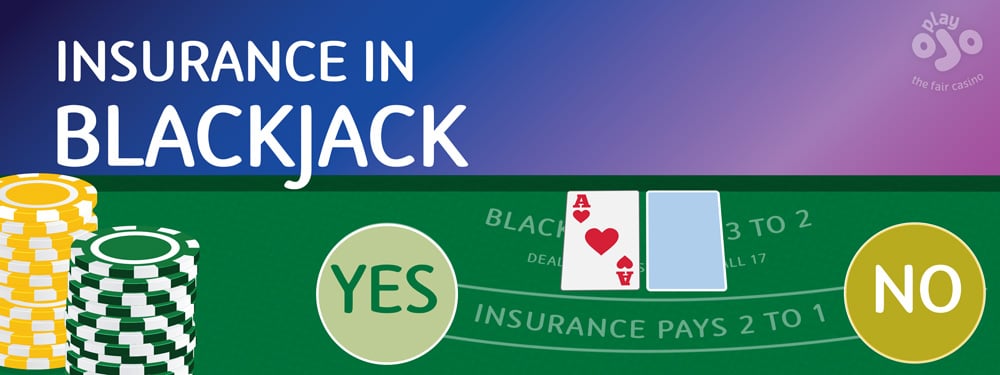To improve your blackjack skills, you must educate yourself about insurance. When executed well, this tactical choice can make the difference between winning and losing.
We will go over what insurance is, when to use it, and how it functions in this blog post. So continue reading to learn everything there is to know about this crucial blackjack concept!
When to take insurance in blackjack
If the dealer’s up card is an ace, taking insurance can seem like a good idea because there’s a nearly one-in-three chance their other card will be worth ten.
However, unless you are a highly skilled card counter, likelihood indicates that insurance is probably going to be a losing wager over the long run.
To win your insurance bet, the dealer must hold a 10-value card as his hole card. Professional card counters may keep track of how many cards are left in the deck and determine when there are enough to make the
When the dealer’s upcard is an Ace and you have a respectable hand of at least 15 points, it is preferable to place an insurance bet. This increases the likelihood that you will win the round even if your insurance bet is unsuccessful.
Since the insurance bet pays out 2 to 1, it can become a losing proposition for players since they typically lose more than half of the insurance bets they place.
Insurance bets, statistically speaking, can result in long-term losses, particularly if you’re not familiar with card-counting or basic strategy.
Advantages and disadvantages of insurance betting
To win at blackjack, a player just needs to outscore the dealer’s hand. However, any tied hands result in a “push,” in which the player’s bet is reimbursed.
In a game with many decks, insurance can be a wise wager. The number of cards having a value of 10 in the shoe increases with the number of decks utilized. The dealer’s chances of getting blackjack are increased by the large number of 10-value cards that must be drawn.
Insurance isn’t worth a gamble if a player has a mediocre hand, such a 14 or a 15. Save your money because you have little chance of winning the hand anyway.
In any case, it is generally acknowledged that players lose money over the long run by purchasing insurance. The 2/1 price is not high enough to make the wager worthwhile.
If the dealer’s card is an ace after you’ve been dealt your cards, insurance will be provided. If you’re dealt 21, what happens? Insurance is unnecessary in this scenario since 토토 if the dealer has blackjack, you will tie and break even. Introducing the even money offer.
A natural blackjack ties with a dealer blackjack but pays 3:2. If you accept the even money bet, you will receive a 1:1 payment on your hand of blackjack regardless of the dealer’s card, which means you cannot break even. You will, however, be getting a less reward than you otherwise would have if the dealer doesn’t have blackjack.
The math in this case is simple.
There are 13 different card types. In order for the dealer to have blackjack, four of them must be 10-value cards. Therefore, the likelihood of you losing the wager is 9/4. Your payout from the casino will only be 2 to 1, making the house edge roughly 6%.
The number of 10s that have been dealt determines the house advantage, as was previously stated.
For a card counter, insurance is by far the most important departure from the fundamental plan.
In fact, before you receive your next hand, I’ll be on the phone with the eye in the sky if I detect nothing else other than the fact that you always take insurance with a huge wager and never with a small one.
In light of this, let’s speak about how our inebriated new blackjack teacher tried to convince you to insure your 20 because it was a “good hand”.
If you were given two cards with a value of 10, you are aware that there are now two fewer cards with a value of 10 that the dealer can use to make a blackjack. At this time, purchasing insurance is even less prudent.
Even Money Confusion
When you have a blackjack against the dealer’s ace, someone at the table will be screaming for you to take insurance.
Since you will receive even money for your wager, this kind of insurance is frequently referred to as even money.
You must understand that even money is not a distinct wager.
It simply refers to the shortcut that dealers employ when paying insurance on a table where a player’s hand of blackjack still pays 3 to 2.
If you placed a $10 wager and got a blackjack in this scenario, you may ask for even money. The dealer will gladly give you $10, take your cards, and leave you to enjoy yourself.
